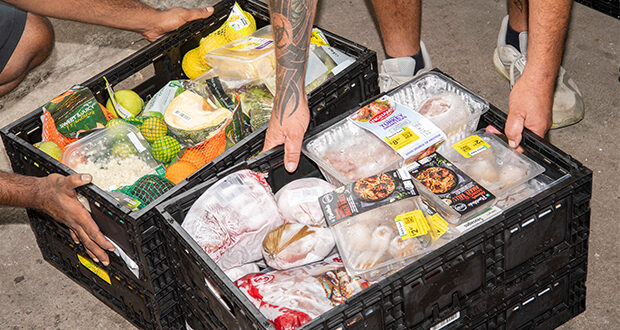International students studying in Australia are going hungry at an "alarming rate" according to a new report.
Monash University researchers interviewed 60 overseas students across Melbourne last year and found nearly half were struggling to afford basic groceries due to skyrocketing living costs and the difficulties of studying and working simultaneously.
The study, conducted by experts at Monash's centre for youth policy and education practice, found overseas students experienced food insecurity at rates nearly three times higher than the rest of the population.
Co-author Professor Lucas Walsh said students were being forced to resort to financial "coping strategies" such as accessing food relief banks or opting for more processed meals.
"International students are strategic and have already developed multiple coping strategies to avoid food insecurity, including adapting their budgets and developing tactics to mitigate the effects of food insecurity," Professor Walsh said. .
"When a crisis like COVID-19 or the cost of living crisis hits, many of these strategies stop working. That's what we need to understand to better support these international students."
According to charity Foodbank Hunger in 2022 about 2 million Australian households ran out of food due to limited finances.
Several studies have shown that food insecurity can severely impact a student's learning capabilities, concentration, and willingness to engage in lectures.
In Victoria, international students represent nearly 40 per cent of the population, with more than 180,000 overseas students living in Melbourne.
While international student numbers are still below pre-pandemic, government data showed that 53,640 students arrived in the country during March, with overseas arrival being 42 per cent higher since January than last year during the same period.
Pre-pandemic research has highlighted that one in four overseas students experiences severe financial stress, causing them to regularly skip meals to pay for tuition, rent and study-related costs.
One Monash survey participant told researchers he didn't "choose what to eat" but his "wallet does".
Another student reported that her relationship with food had changed since she arrived in Australia and ate the "sake of it".
"I don't really enjoy eating nowadays… it's directly showing on my body and my energy levels…[but] I feel I've lost the will to also put in so much effort to cook. And obviously, when you can't have the home food, you miss home even more," a 25-year-old said.
According to co-study author Ms Agrata Mukherjee said for overseas students, food is more than a basic need, "it is an emotion".
"For international students who live far away from home, being able to eat familiar foods is like revisiting their memories - a connection to cultural roots," she said.
Do you have an idea for a story?Email [email protected]
 Campus Review The latest in higher education news
Campus Review The latest in higher education news

